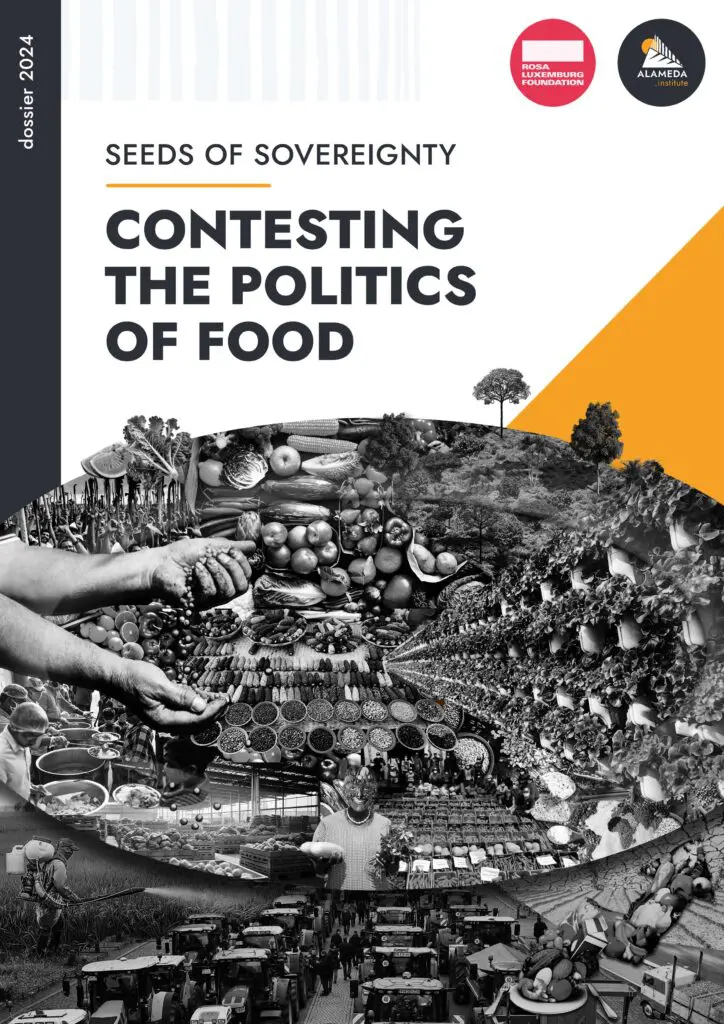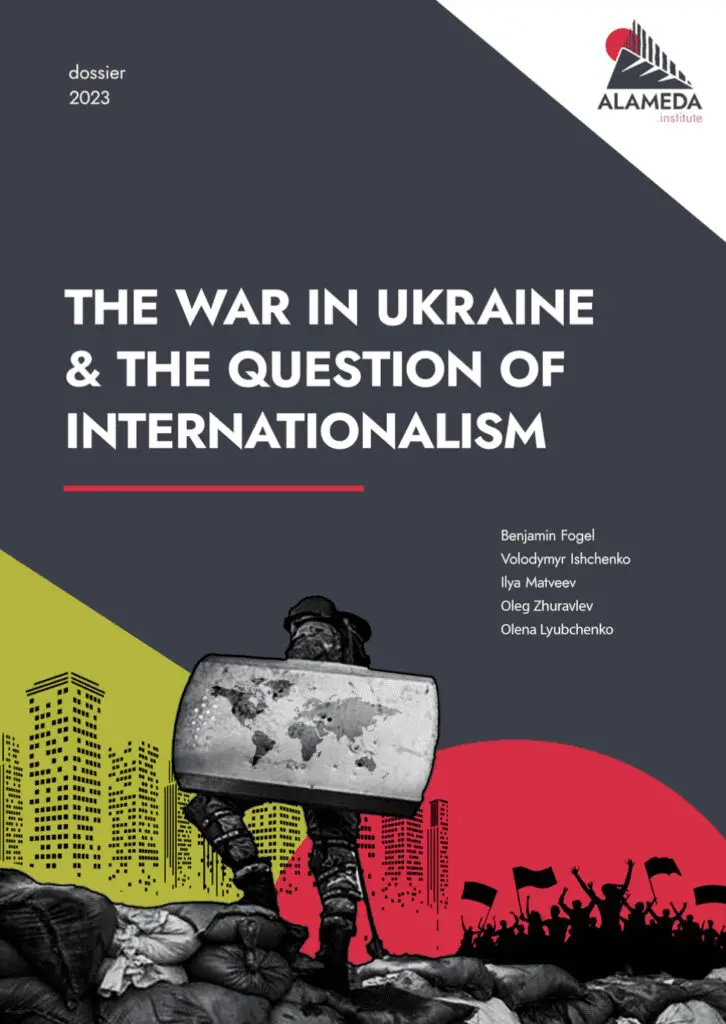Towards a Pragmatics of ‘Disaster Knowledge’: Reflections on Istanbul, Türkiye
Disaster Knowledge; Pragmatics; Displacement; Inter-cross; Group Specificities
This contribution is an attempt to explore the possible understandings and practices of “disaster knowledge”, able to inform the growing idea of polycrisis and the efforts needed to address it. In this vein, I use this space as a conceptual laboratory to navigate the diversely motivated “crises” to which different social groups residing in the earthquake-prone city of Istanbul respond on the basis of both individual and collective peculiarities and livelihood means.
Media accounts and common knowledge tend to train us to think of ‘crisis’ as an exceptional state of social, economic, and political affairs. Yet the vast majority of so-called crises, such as the February 2023 earthquake in Türkiye and Syria, the gradual economic collapse in Lebanon, or today’s all-out war on Gaza and Lebanon, are simply the tip of an iceberg: they are the product of historical processes and manageable, often predictable phenomena. In other words, crises are approached as ‘shocks’ that disrupt normal life, when in fact they are inherently political constructions (Calhoun 2004; Ophir 2010; Vazquez-Arroyo 2013). During my past research in Lebanon, I navigated crisis not only as a political construction but as a social one. Different social groups would understand and respond to crisis according to how it was being practically managed and spoken about in the public or political discourse (Carpi, 2023). In the context of the earthquake-prone city of Istanbul, it became clear that disasters are neither ‘natural’ nor one-off events, but human-made and continuous through time.
The Türkiye-focused academic literature has only recently placed ‘natural’ disasters like earthquakes in closer correlation with other ‘crises’ of different nature. For instance, considering the large number of refugees from Syria living across Türkiye, the interrelation of conflict-induced migration and disaster management has become more relevant than ever over the last decade, and especially after the devastating earthquake in Kahramanmaraş in 2023. I aim to identify the opportunites for reflection, political innovation, and grassroots intervention in the overlapping fields of conflict, mobility, and disaster, which we generally identify as crises in our everyday discourse. I endeavour to challenge the fictitious framing of ‘crisis’, which often leads to a misleading approach, and the siloing of understanding and management for reasons of logistical – as well as discursive – convenience. With these considerations, developing a ‘pragmatics’ of disaster knowledge means grasping the meaning, the actionability, and the factual implications of this knowledge in real-world situations. Türkiye is far from the only context in which concomitant crises are responded to with insufficiently integrated approaches, and opportunities for learning and dialogue are wasted. Indeed, Lebanon’s experience following the August 2020 Beirut port explosion also pointed to the intersection of disasters and different forms of fragility, conflict, and violence (World Bank and GFDRR, 2024), though these links were largely overlooked.
I began to elaborate the concept of ‘disaster knowledge’ in analysing the level, quality, and type of engagement of Arabic- and Persian-speaking migrants and refugees in Istanbul’s southwestern suburbs with municipal disaster preparedness programmes in the city (Carpi et al., 2024). The concept is intended to pave the way to an intersectional understanding of disaster that encompasses conflict, climate change, longstanding urban and ecological risk, and other concomitant crises that subtend today’s way of living. From this theoretical ground, the development of a pragmatics of disaster knowledge could benefit a global community of practitioners, thinkers and ordinary people interested in and affected by disasters and crises in the broad sense, as well as, most importantly, helping to manage such crises. Academic and grey literature has mostly approached different crises, risks, and disasters as separate bodies of knowledge, missing their interrelations and leading to a shortfall of knowledge of relevant forms of local displacement in contemporary societies, such as forced mobility motivated by war and cognate factors derived from war, such as collapsed economies, enduring outbursts of violence, or political persecution (these being the reasons for the presence of many migrants and refugees in Türkiye today). A pragmatics of disaster knowledge enables us to learn how such interrelation produces diverse types of vulnerability across different affected groups, and how a multivalent – rather than disaster-centred – approach can be developed to face today’s polycrisis. A pragmatics of disaster knowledge can also enable us to deconstruct and examine group-specific experiences within a society, and advocate for bespoke responses and acknowledgment of group-based rights. It is only after developing such group-oriented responses and acknowledgments that a holistic understanding of and solution to a society-wide crisis becomes conceivable. At present, the literature addressing disaster is still short of group-informed analyses and interventions, resulting in a group-blind rather than holistic approach.
In this context, the politics of housing in Türkiye affects how different social groups undertake what scholars have called ‘disaster avoidance behaviour’ – such as trying to move elsewhere – during and after disaster (Wu et al., 2022). As evidenced in recent research (Carpi et al., 2024), the lack of citizenship, by definition – or even the social stigmatisation of citizens with migrant backgrounds – prevents a large number of refugees and migrants in Istanbul from accessing putatively safer housing and, therefore, building conditions of safety vis-a-vis future disasters. This variable underlines the importance of tailoring disaster-preparedness programmes to the material means, cultural approaches, and legal conditions of different groups. It is also an invitation to understand disaster knowledge beyond existing policies: The ‘earthquake talk’ in Türkiye has mostly revolved around the discussion of policy, ignoring the importance of factors such as the lifestyle, cultural norms, and living conditions of migrant and refugee groups in Istanbul.
The Afet Bilinci Eğitimi (Disaster Awareness Education) consists of local programs led by several municipalities across Türkiye. The material included in these programmes is increasingly translated into English and, to a lesser extent, Arabic and few other foreign languages, to provide foreigners with access to disaster preparedness. However, even when translated, these programmes are generally understood as a kit of technical skills and capacities, which should be developed by all residents; in practice, they are delivered and implemented in Turkish. Notwithstanding such language barriers (which still need to be addressed at large scale, considering Istanbul’s highly diverse demography), can people really prepare for disasters just by knowing about them and the related measures they should take? The predominant understanding of disaster knowledge as synonymous with technical preparedness leads to the neglect of the cultural, economic, and legal peculiarities of the different national and social groups which make up the affected society (see Carpi et al., 2024). A pragmatics of disaster knowledge would inform a collective, conscious, and responsive politics of vigilance, self-management, and mutual support while living with disasters.
The limitedness of these municipal programmes resides in not going beyond the mere provision of technical suggestions and measures: Can people prepare to disasters by simply knowing about them and the related measures? How should we unpack a holistic approach to disaster response in order to better support different social groups?
Scholars of ‘disaster knowledge’ have predominantly framed it as a technical toolkit to develop preparedness from a technocratic perspective. They describe how to manage disasters ‘successfully’, with ‘knowledge’ to this end merely comprising operational, managerial, economic, social, legal and environmental factors that have direct influence over the disaster-management cycle. Examples of these include ‘the lack of detection and warning systems, the need for effective education, training and awareness raising programmes, the need for regular updating of disaster related laws, lack of funds for economic planning measures, poor planning, poor communication, poor leadership, and poor institutional arrangement’ (Pathirage et al., 2012). While these challenges are representative of many disaster-affected contexts, they have not been examined along social-group lines that take into account the peculiarities among different segments of the affected societies. Pathirage et al. (2012), for example, found that the influence of institutional and political factors is indirect; in Türkiye, however, institutional politics permeates all disaster-related discussions, and, as a consequence, official political capital emerges as the predominant and even the sole factor for the success or failure of disaster preparedness. In the meantime, group-based characteristics, living conditions and tendencies have long been overlooked in such discussions.
Spiekermann et al. (2015) discuss disaster knowledge as ‘information flows from and to different stakeholder groups’, and raise the issues of cultural values, communication, understanding, and mistrust as barriers to putting such more-than-technical knowledge in place. Nonetheless, the need to scale down to a group-based approach only started being recognised after the 2023 earthquake, with a disproportionate focus on refugees from Syria over other social groups affected by the earthquake. In an attempt to build up a broader agenda for a useful and implementable disaster knowledge, scholars have looked at how some professional cultures either facilitate or hamper the circulation of disaster knowledge (Marincioni, 2007), though the latter is still predominantly understood as technical know-how. While cultural differences remain under-acknowledged, the age of recipients has gradually become a relevant factor in Disaster Risk Reduction (DRR) programming, such as in the case of disaster education assessments among school-aged children in Türkiye and Nepal (Yildiz et al., 2023).
To incorporate the workings of culture into such programmes requires the inclusion and acknowledgment of so-called ‘indigenous knowledge’ (Lin and Chang, 2020; Griffin and Barney, 2021). Scholars worldwide (e.g., Kelman et al., 2020) have rightly highlighted the importance of having contextual cultures inform DRR programming, although ‘indigenous’ is mostly used as a synonym for the merely ‘local’ (e.g., Munsaka and Dube, 2018). In this framework, the concept of indigenous knowledge, and the growing advocacy towards an inclusive approach in western-led DRR, has often led to the siloing of local, transnational, and international approaches that should otherwise overlap.
The meaning of ‘indigenous’ evolves across localities and regions after internal and/or international mobility. Researching the historical interconnectedness of what we label today as ‘indigenous knowledge’ within the countries or regions of origin is essential. It is increasingly known that especially longstanding refugee and migrant groups can effectively weave and catalyse networks of support and put in place effective disaster responses which, in some cases, may extend beyond the official boundaries of the states where they reside. A pragmatics of disaster knowledge can trace the networks and modalities which have become primary assets for migrants and refugees, while local and/or national disaster preparedness standardised kits remain difficult to access for these groups due to cultural, political, economic, and/or linguistic barriers.
A group-informed pragmatics of disaster knowledge not only tells us how longstanding and recent migrant groups can build their own access to response and recovery infrastructure in receiving societies during and after disasters, but also shows how such migrants and refugees look to other groups, how they reorganise life after displacement (or mobility) and relocation, and how they negotiate trust in the local system of disaster management which they are or are not eligible to access. Furthermore, a fluid understanding of social membership and group-making as unbound by national identity can also offer an empirically rigorous method of examining how the assets of community and identity evolve when mobility is undertaken due to war, disaster, economic collapse, and/or climate risks. Thus, this group-informed approach to disaster knowledge entails a substantial focal shift from the political to the social capital, and also the effort of taking a step back to unpack the actual configuration of social capital in Istanbul, or anywhere else.



